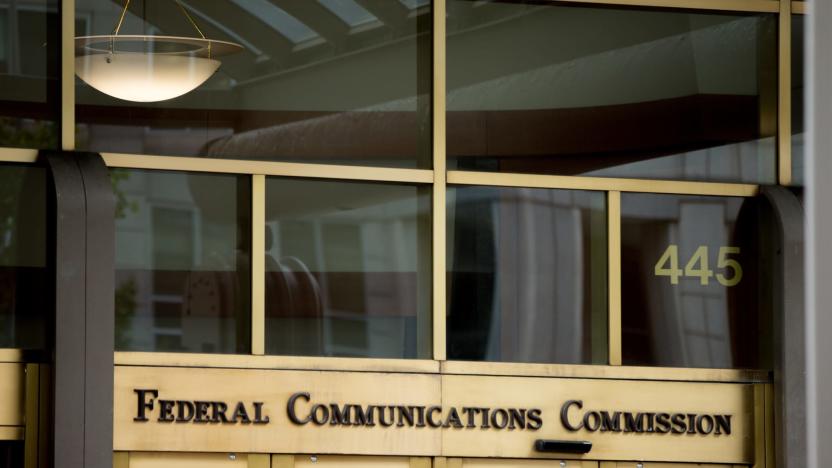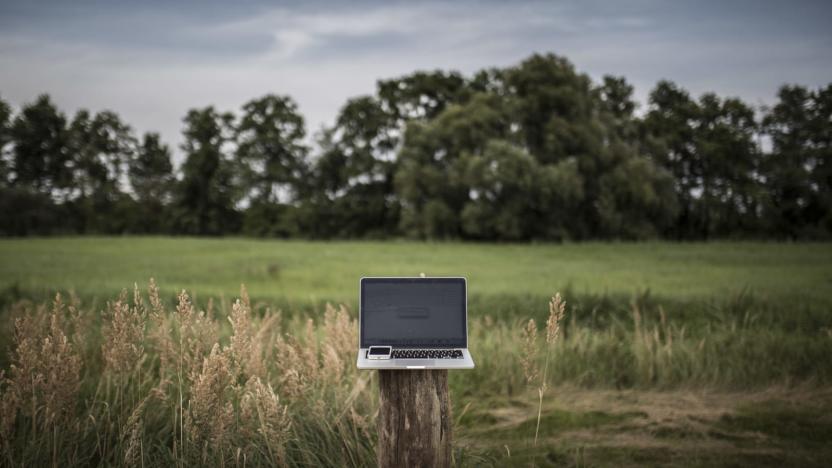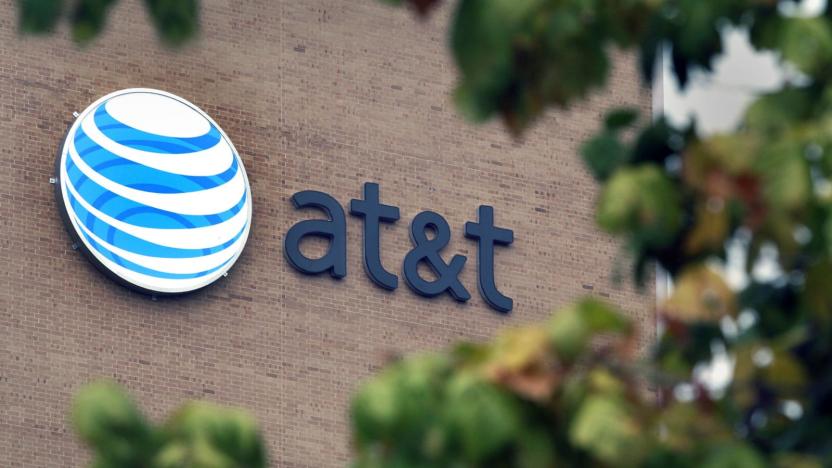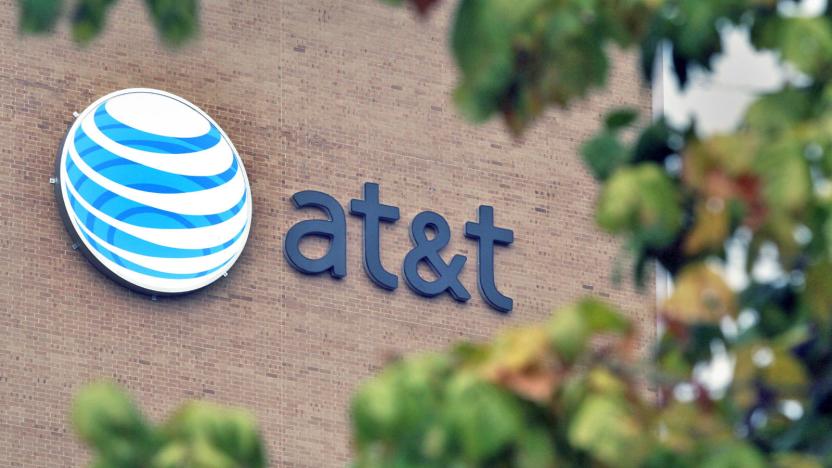connectamericafund
Latest

FCC allocates $67 million to boost rural broadband adoption
The FCC is acting on its promise to pour more money into rural broadband. The regulator has formally offered an additional $67 million to 207 rural carriers through the Connect America Fund on the condition they "significantly expand" access to service with at least 25Mbps downloads and 3Mbps in uploads. If you ask the FCC, this could speed up internet access for as many as 110,000 households across 43 states.

FCC offers $67 million more per year for rural broadband programs
The Federal Communications Commission announced today additional funding to its Connect America Fund dedicated to expanding broadband internet service to rural communities. The agency will make available $67 million more per year than originally earmarked for the project. The funds could bring high-speed internet connections to more than 100,000 additional households and businesses, per the FCC.

FCC funds rural broadband for more than 700,000 homes and businesses
As part of its efforts to make broadband more available in rural areas, the Federal Communications Commission announced that the Connect America Fund Phase II "reverse auction" will bring broadband service to more than 700,000 homes and businesses for the first time. More than half of those will have download speeds of 100Mbps or more, with 19 percent gaining access to gigabit downloads. All but a couple thousand locations will have access to download speeds of at least 25Mbps.

FCC chair proposes $500 million push for rural broadband
Bringing broadband internet access to rural areas has been an ongoing, long-term effort, but millions of Americans, including over a third of rural citizens according to 2016 reports, still don't have the option. Today FCC Chairman Ajit Pai proposed an order that would put $500 million in funding towards closing the broadband gap, institute new regulations aimed at preventing abuse of the Connect America Fund and promote broadband access in tribal lands.

AT&T's rural wireless internet is now available in 18 states
If you've been waiting for AT&T's rural wireless internet to show up in your state, there's now a good chance you can sign up. The telecom has launched the service in nine more states, or twice as many as it had just a few months ago. And this includes some of the most populous states in the country -- California and Texas are included along with Arkansas, Illinois, Indiana, Kansas, Michigan, Ohio and Wisconsin. AT&T says about 160,000 locations are covered (more than double what it could manage in June), and it's reportedly still on track to serve 400,000 locations before 2017 is over.

AT&T is rapidly expanding its rural wireless internet service
AT&T wasn't kidding when it said it would expand its rural wireless internet service in short order. The carrier has launched its fixed-in-place cellular access in eight more southeastern states, providing broadband to over 70,000 locations that would otherwise have poor or non-existent internet coverage. That still doesn't sound like much, but it's much larger than the Georgia-only service AT&T started with in April. It also gets the provider much closer to its goal of serving over 400,000 locations by the end of 2017.

AT&T's rural wireless internet push starts with Georgia
AT&T is making good on an FCC Connect America Fund promise to bring reasonably fast internet to rural dwellers and those who'd otherwise have to settle for pokey service. The carrier has completed its first batch of fixed wireless internet rollouts in Georgia, sending LTE cellular data to the home through a static antenna system. AT&T's version offers speeds of "at least" 10Mbps downstream and 1Mbps upstream. That's not the 25Mbps/3Mbps that the FCC currently defines as broadband, but it's enough to use many modern services -- and unlike satellite internet, it's not prone to high latency or interference from the weather. As you might guess from the cell connection, though, you won't have unlimited access.

FCC approves $170 million for New York broadband rollout
The FCC's first action under new Chairman Ajit Pai will direct up to $170 million in federal funding to help ease the digital divide in New York State. The commission voted Thursday to approve the funds as part of the Connect America program, which is designed to invest in broadband deployment and infrastructure in rural and underserved areas.

FCC gets approval for plan to subsidize fast rural internet access
At long last, the FCC can move forward with reforming its rural connection subsidies for the broadband era. A federal appeals court has upheld the agency's Connect America Fund after challenges from smaller carriers, which were worried that the shift from subsidizing phone calls to fast internet access would hurt their bottom line. Their arguments were either "unpersuasive" or were blocked from legal consideration in the first place, the court says.

FCC report says 19 million Americans still without broadband access
The FCC believes that 19 million Americans don't have access to broadband, defined as internet access at a speed of 4 megabits per second or more. Understandably, rural areas are the worst hit, with 14.5 million out in the sticks without access, with areas like West Virginia lacking coverage for 45.9 percent of its population. It's not limited to the wide open spaces of states like Montana (16.7 percent) however, even tech-heavy states like California lack access for 35 percent of its denizens. The commission's Connect America fund is charged with closing this gap, and has already awarded CenturyLink $35 million to connect 45,000 homes in under-served areas as part of a plan to help seven million more people get online by 2018.

CenturyLink gets $35 million FCC grant to connect 45,000 rural homes to the internet (updated)
CenturyLink has announced that it's getting $35 million from the FCC's Connect America Fund to hook 45,000 homes in rural areas up to the internet. The company isn't hiding its disappointment at the donation, since it was originally angling for closer to $90 million. However, the conditions attached to the extra cash made further deployment "uneconomic," so the company will have to settle at this first target to begin with. There is some hope for countryside folk: CenturyLink mavens have filed a waiver application which, if granted, would let the company connect a further 60,000 homes where service is currently too expensive to install. Update: The FCC has made its own announcement, pledging that it'll connect up to 400,000 unconnected citizens in the next three years and up to seven million in six. The full text is after the jump.

FCC's 'Connect America Fund' redirects phone fees to provide rural broadband
The Federal Communications Commission has just unveiled a new plan that'll overhaul an $8 billion fund that's currently used to "subsidize phone service in rural areas and for the poor," pointing that money towards buildouts in the ambitious rural broadband initiative. Most critics suggest that the existing fee model is severely outdated, and in fact, encourages "perverse schemes by carriers to stimulate certain kinds of phone traffic." Not surprisingly, FCC Chairman Julius Genachowski has said that he "doesn't expect" phone rates to increase for most consumers, and the agency's currently estimating a $2.2 billion savings from fees that are currently paid out to phone companies. Politics aside, the goal here is to provide broadband access (however that's defined) to every American by the end of the decade, with Genachowski quipping: "We are taking a system designed for the Alexander Graham Bell era of rotary telephones and modernizing it for the era of Steve Jobs and the internet future he imagined." Pretty sure more than just Jobs had visions of a connected future, but we're following the logic, Jules.





